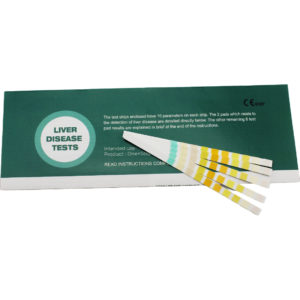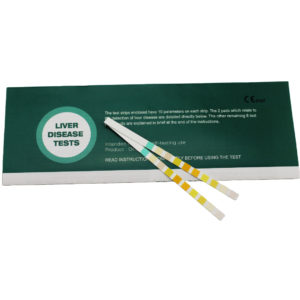Most people in the UK drink alcohol and in the last decade there has been a marked increase in the amount that people drink. Drinking excessive amounts of alcohol can cause liver disease. Alcohol is quickly absorbed into the bloodstream from the stomach and upper part of the small intestine, this then passes through the liver. When in the bloodstream alcohol reaches all the organs in the body but it is the liver that sees the highest concentrations and so it is the liver that is most prone to alcohol related problems.
The amount of alcohol that causes liver damages seems to vary widely between individuals. There appears to be a genetic susceptibility to the harmful effects of alcohol and women tend to be more sensitive than men. However, it goes without saying the more you drink the more likely you are to develop the more advanced forms of the disease.
The liver is by far the largest organ in the body, it is situated in the upper abdomen and is protected from injury by the rib cage and has many important functions.
For more detailed information on alcohol, the units and what the recommended consumption of alcohol is click here.
How does alcoholic liver disease progress?
There are 3 main stages of liver disease though the progression through these stages is variable.
Stage 1 – Minimal change, almost all heavy drinkers will develop this stage known as fatty liver. This is not linked to deterioration of liver function, but abnormalities may be seen in some blood tests. A fatty liver is reversible if alcohol is given up completely.
Stage 2 – Alcoholic Hepatitis, the effects of this condition can be mild but also be life threatening. The results of a liver function test will almost always be abnormal and jaundice may develop. Again, if alcohol is given up at this time the effects can be reversed but if you continue to drink heavily you will have a high risk of developing cirrhosis.
Stage 3 – Cirrhosis, this is the final stage and is irreversible. Cirrhosis means that the healthy tissue has been destroyed leaving scar tissue which can block the flow of blood through an organ. For more information on cirrhosis of the liver click here.
What are the symptoms?
Unfortunately, like most liver disease it is symptomless in the early stages and when there are symptoms they are often vague. You may experience fatigue, nausea, vomiting (especially in the morning), diarrhoea or abdominal pains.
However, as the disease progresses, and the liver is unable to perform its functions you may develop more specific liver related symptoms such as jaundice.
How is alcoholic liver disease diagnosed?
If you have a history of drinking excess alcohol then your doctor may recommend a liver function test or scans to establish the presence and/or severity of liver damage. To purchase a liver function test click here.
What is the treatment for alcoholic liver disease?
The most important thing you can do is stop drinking, cutting down will only reduce the rate of damage.
For people with advanced alcoholic hepatitis admission to hospital may be required. For more information on the treatment please read our page on cirrhosis of the liver.




Please note that you can NOT buy the following combinations of medicines.
If purchasing separately the maximum number of tablets is 96 of each type. If purchasing as a combination then the maximum allowed is 96 tablets in total.
The maximum number of tablets is 96 of each type of the following medicine combinations;
The maximum number of Co-codamol you’re allowed to purchase is 32 tablets.
If you have any additional questions please Contact Us
The New Model from SD Biosensor (the manufacturers of the No.1 selling SD Codefree Blood Glucose Meter) has all the benefits of the Codefree plus it boasts a greater accuracy due to a wider haematocrit (HCT) range of 0-70% and GDH-FAD enzyme technology.
All of this with prices starting from just £11.99!
Click here to find out more information.
